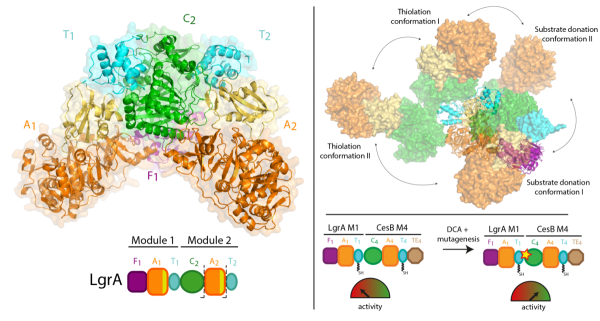Researchers at McGill University’s Faculty of Medicine have made important strides in understanding the functioning of enzymes that play an integral role in the production of antibiotics and other therapeutics. Their findings are published in Science.
“Many of the medicines that we rely on today are natural products, made by the Earth’s flora,” explains Dr. Martin Schmeing, Associate Professor in the Department of Biochemistry at McGill and the study’s senior author. “This includes compounds made in microbes by massive enzymes called nonribosomal peptide synthetases, or NRPSs. NRPSs synthesize all sorts of antibiotics, which can kill dangerous fungi and bacteria, as well as compounds to help us fight off viral infections and cancers. For example, these compounds include viomycin, an antibiotic used for the treatment of multidrug-resistant tuberculosis; cyclosporin, which has been widely used as an immunosuppressant in organ transplants; and the familiar antibiotic penicillin.”
In order to synthesize these drugs, NRPSs operate similar to a factory assembly line, consisting of a series of workstations. Each station, called a “module”, has multi-step workflows and moving parts that allow it to add one building block component to the growing drug.
Read more at McGill University
Image: New understanding of antibiotic synthesis. CREDIT: McGill University


